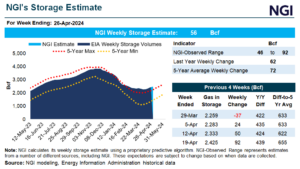Regulatory | NGI All News Access | NGI The Weekly Gas Market Report
SCOTUS Ruling on Power Plant Emissions Seen as Warning to Federal Agencies to Tread Lightly
© 2024 Natural Gas Intelligence. All rights reserved.
ISSN © 1532-1231 | ISSN © 2577-9877 | ISSN © 1532-1266 |



